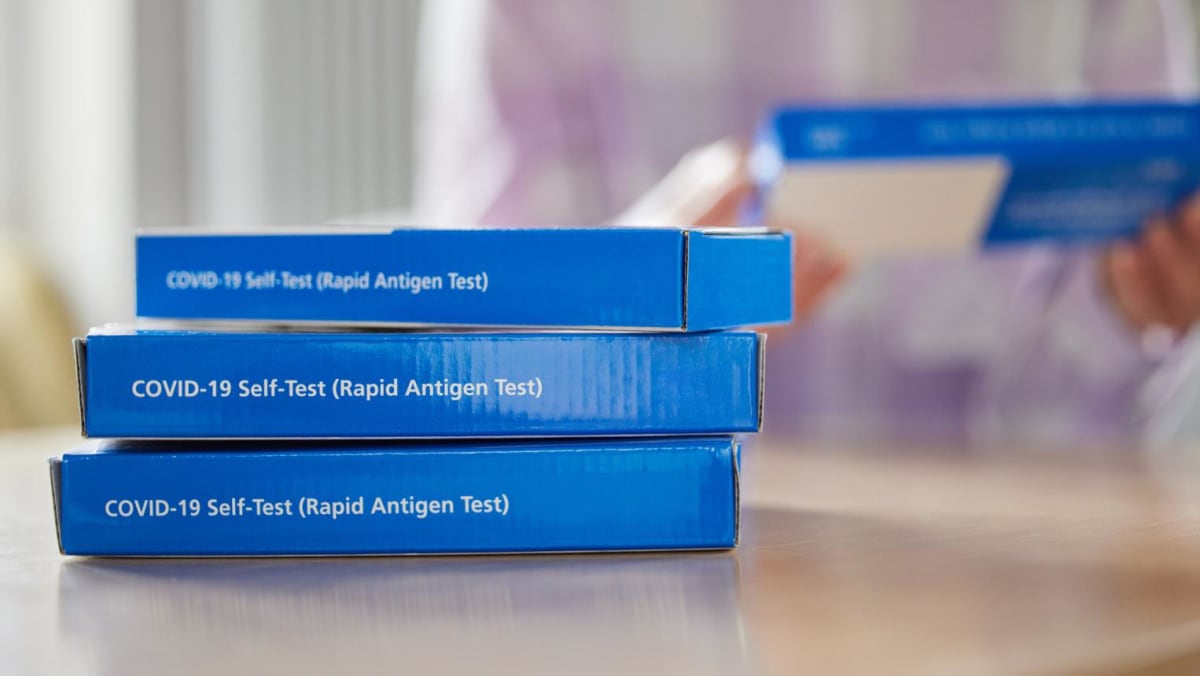If your household has received the latest batch of six antigen rapid test (ART) kits from the government recently, you might be wondering: What do I do with them when you have a stockpile of test kits in your drawer – and no one at home has come down with COVID-19 lately?
Or you might have other queries such as, “can I still use the test kits from two years ago?”, “how do I tell if the test kits have gone bad?” and “can I donate them?”. We find out from the experts:
CAN I STILL USE THE ART TEST KIT FROM TWO YEARS AGO?
To be certain, check the expiration date stamped on the box. Make sure you’re looking at the “expiration date” because the “shelf life” is something else altogether.
The shelf life is how long the test kit should perform as expected and is measured from the date of manufacture, according to the US Food and Drug Administration (FDA). On the other hand, the expiration date is set at the end of the shelf life and is the date through which the test is expected to perform as accurately as when manufactured.
ARE THERE CERTAIN STORAGE CONDITIONS I SHOULD KEEP THE TEST KITS IN?
To maintain the effectiveness of the ART kits, appropriate storage conditions should be observed, said Dr Jaichandar. First, you’ll want to keep your test kits in a cool place with a temperature between 15 degrees Celsius and 30 degrees Celsius, he said. You’ll need a “dry environment with moderate humidity levels” and “avoid direct sunlight and excessive exposure to light”.
The ART kits are also not things you want to tamper with, like opening and transferring them into more aesthetically pleasing containers. “The individual packaging and pouches of each of the test components must not be tampered with, broken or opened until immediately before the test is to be conducted,” said Kng Li Lin, Grace, a community pharmacist and member of the PSS.
“Exposing the test components to light, moisture and oxygen for a prolonged period may affect the accuracy of test results,” she said.
Related:
How COVID-19 affects the heart: The short- and long-term risks
COVID-19 can disrupt your sleep even after you've recovered – here’s how to deal with it
As for ART kits kept in the fridge, “all kit components must be brought to room temperature for a minimum of 30 minutes prior to use”, said Law Hwa Lin, a senior principal pharmacist (specialist) and member of the PSS.
If you’re wondering, should you keep all your test kits in the fridge, Prof Tambyah said that “it depends on the test kit and the respective manufacturers’ instructions”.
“Appropriate storage generally refers primarily to room temperature and the FDA has suggested 15 degrees Celsius and 30 degrees Celsius, which is around the room temperature in Singapore in both air-conditioned and non-air-conditioned settings.”
WHAT ABOUT THE RESULTS OF EXPIRED TEST KITS? WHAT ARE THEY LIKELY TO SHOW?
“It is hard to say but I think false negatives are theoretically more likely,” said Prof Tambyah. “That is because a working buffer is essential to make sure the sample travels up the test strip to get the results. If the sample cannot travel up the strip, it might appear negative when there actually is virus in the swab.”
Kng added that “there is no guarantee how the deterioration may affect the test results”. It is always better to err on the side of caution and “always follow the expiry date stated by the manufacturer of the ART test kits”, said Law, because there is no guarantee that “using an expired ART test kit would produce accurate results”.
Related:
Are you overusing cleaning products? You don't need to disinfect so much
WHAT IS THE MINIMUM NUMBER OF KITS TO KEEP AT HOME? CAN I DONATE SURPLUS TEST KITS?
How many ART kits to keep depends on your “anxiety level and the number of immunocompromised people at home”, said Prof Tambyah. “For those who are vulnerable or at risk of severe infections, more test kits are needed so they can seek medical attention early. For the rest of us, I think one kit per person is more than enough.”
For a family of four, Dr Jaichandar suggested as a general guideline to have a minimum of four to eight test kits. But ultimately, “the number can depend on various factors, including the prevalence of COVID-19 in your area, the frequency of potential exposure and your individual circumstances”, he said.





